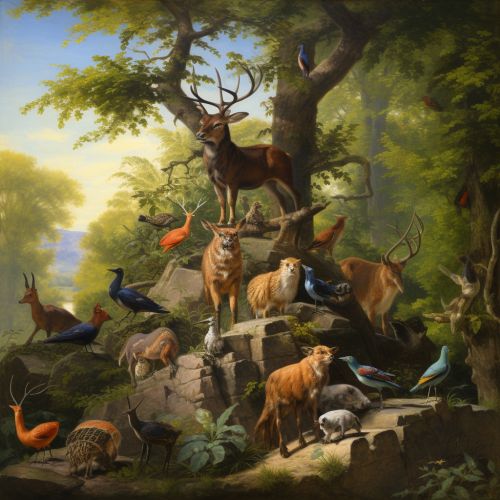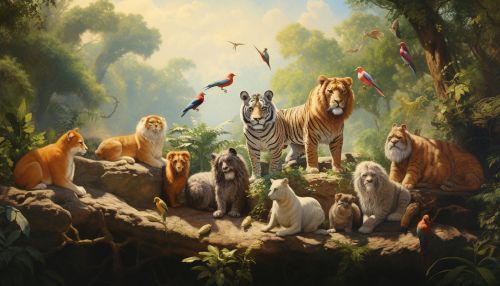Zoology
Introduction
Zoology, a branch of biology, is the scientific study of animals. This includes the study of their classification, habits, distribution, and structure, as well as their interaction with their ecosystems. Zoology is a comprehensive field that encompasses various sub-disciplines, each focusing on specific aspects of animal life.


History of Zoology
The study of animals dates back to ancient times. Early civilizations, such as the Egyptians and Greeks, made significant contributions to the early understanding of animals. Aristotle, a Greek philosopher, is often considered the "Father of Zoology" due to his extensive studies and writings on the subject.
Branches of Zoology
Zoology is divided into numerous sub-disciplines, each focusing on a specific area of study. These include:
- Ethology: The study of animal behavior.
- Herpetology: The study of reptiles and amphibians.
- Ichthyology: The study of fish.
- Mammalogy: The study of mammals.
- Ornithology: The study of birds.
- Entomology: The study of insects.
- Paleozoology: The study of extinct animals.
- Parasitology: The study of parasites and parasitism.
- Zoogeography: The study of the geographical distribution of animals.
Methods of Study
Zoologists utilize a variety of methods to study animals. These include observational studies in the animals' natural habitats, experimental studies in laboratories, and comparative studies across different species. Modern zoology also incorporates molecular biology techniques to study the genetics of animals.
Importance of Zoology
Zoology plays a crucial role in understanding the natural world. It aids in the conservation of endangered species, helps control diseases spread by animals, and contributes to the development of new medicines. Moreover, it provides insights into animal behavior, which can be applied to understand human behavior.
Careers in Zoology
Zoology offers a wide range of career opportunities. Zoologists can work in various settings, including universities, research institutions, zoos, wildlife parks, and government agencies. They can specialize in areas such as animal behavior, ecology, genetics, physiology, and conservation.
